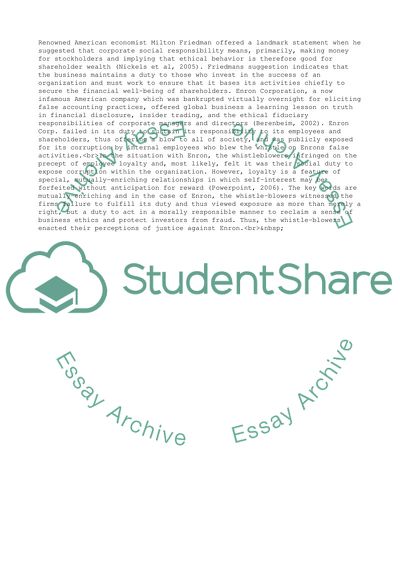Cite this document
(Whistleblower Duty: Refuting Arguments Against Moral Obligations Research Paper, n.d.)
Whistleblower Duty: Refuting Arguments Against Moral Obligations Research Paper. Retrieved from https://studentshare.org/business/1538045-philosophy-essay-2-business-and-professional-ethics
Whistleblower Duty: Refuting Arguments Against Moral Obligations Research Paper. Retrieved from https://studentshare.org/business/1538045-philosophy-essay-2-business-and-professional-ethics
(Whistleblower Duty: Refuting Arguments Against Moral Obligations Research Paper)
Whistleblower Duty: Refuting Arguments Against Moral Obligations Research Paper. https://studentshare.org/business/1538045-philosophy-essay-2-business-and-professional-ethics.
Whistleblower Duty: Refuting Arguments Against Moral Obligations Research Paper. https://studentshare.org/business/1538045-philosophy-essay-2-business-and-professional-ethics.
“Whistleblower Duty: Refuting Arguments Against Moral Obligations Research Paper”, n.d. https://studentshare.org/business/1538045-philosophy-essay-2-business-and-professional-ethics.


